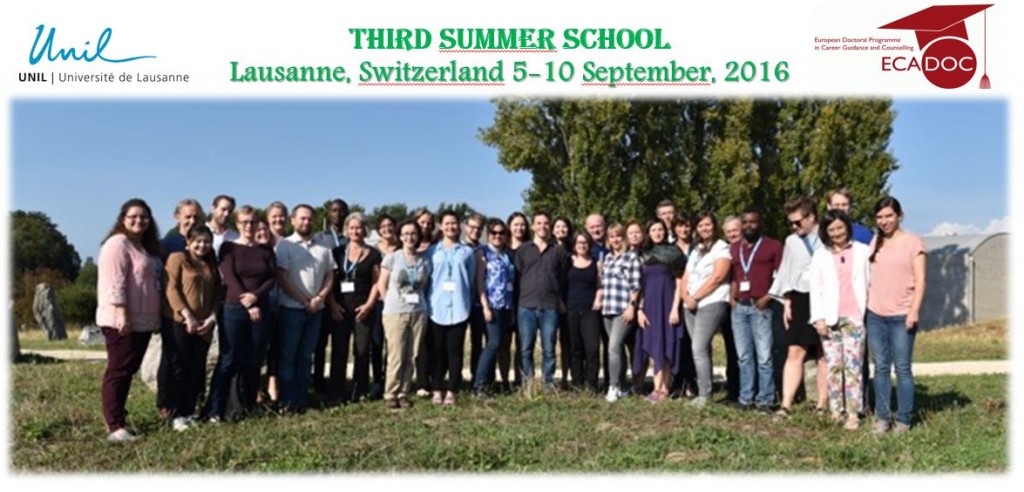Doctoral Students of the Third Summer School
Anouk Albien
Stellenbosch University, South Africa
Anouk Albien is a Psychology PhD student who has worked in the Kayamandi Township on the outskirts of Stellenbosch (South Africa) for 6 years. Her roles have included co-ordinating, training and lecturing career counselling with Psychology Honours students for their community service-learning placement at Kayamandi high schools. Furthermore, she has lectured writing skills, research methodology and statistics classes. Her recently acquired research interests include narrative therapy, emotional intelligence and addiction, which she plans to use in conjunction with career psychology. The primary research focus of her proposed PhD dissertation, under the supervision of Prof Naidoo, is to explore the effect of a career intervention programme on the career adaptability and vocational identity of Grade 11 learners using pre-, post- and follow-up measures. In addition, individual interviews will be used to gain insight into adolescents’ perceptions of their career decisions as well as career adaptability and identity formation processes in a previously marginalised and under-researched group.
Rosie Alexander
University of Derby, United Kingdom
Rosie Alexander is the Careers Manager for the University of the Highlands and Islands, as well as a PhD student with the University of Derby. Rosie’s professional interests focus on the delivery of careers services within rural and remote communities, and on the career pathways and career needs of people within these communities. In her role as Careers Manager, Rosie is responsible for the delivery of careers education, guidance and information services across a partnership of thirteen independent colleges and research institutions based in the Highlands and Islands of Scotland. This role involves utilising web-based technologies alongside videoconference and telephone to deliver services. Rosie’s PhD draws on her interests and focuses on the career and migration routes of higher education students from the islands of Orkney and Shetland in the UK. In this project she is using qualitative narrative methodologies and is seeking to understand how coming from a remote island location influences students’ subsequent career narratives and trajectories. She blogs regularly about her research: https://rosiealexander.wordpress.com/
Susana Almeida Lopes
University of Lisbon, Portugal
Susana Almeida Lopes studied psychology at the University of Coimbra (2000). After her degree, she joined SHL as an R&D Consultant, gaining experience in quantitative methods, assessment centres, 360º feedback, coaching, training, recruitment, competency profiling, job analysis, performance management and culture. In 2008, she joined VdA, a leading independent Portuguese law firm, where she acts as the Organizational Development Director and VdAcademy Director. Linking research and professional interests, Susana started a PhD on Talent Management in Law Firms in 2012, which she will complete soon. Data from 14 law firms has been collected and 2 papers have been published in peer-reviewed journals. The thesis aims at providing support for practices that enable the identification and management of talent, and which could promote the revision of the traditional up-or-out career model by building several career paths and promoting career self-management. In 2014, Susana was identified as one of the Top 10 Legal Innovators by the Financial Times. Susana has been a regular lecturer and speaker at HR conferences. She is married and a mother of two children. Outside work, she likes theatre, literature, travelling and dancing. [Research Project Poster]
Chiara Annovazzi
University of Milano-Bicocca, Italy
Chiara Annovazzi is a social psychologist and a PhD student with a particular interest in career counselling and vocational guidance, gender and cross-cultural psychology. Her research is focused on the development of career adaptability, hope, optimism, courage, and resilience, and on how parents can support their children’s career construction. She places great interest on integrating scientific research and psychological support, working with both qualitative and quantitative methods, and taking into consideration the relationship between the personal resources of her clients and their contexts (psychosocial approach). After her graduation in Social Psychology, Decision Making and Economic Behaviour (2012), Chiara started to work for the Psychosocial Career Counselling Service, one of the services in the of the University of Milano-Bicocca’s Counselling Network. The service, which Chiara manages, integrates a pragmatist approach to empowerment and a Life Design perspective in offering vocational guidance across the various stages in students’ career planning, including for individual and group counselling for non-traditional students and parents of prospective students. The goal is to reduce the number of university drop-outs and to help students to make self-aware career choices. [Research Project Poster]
 Kokou A. Atitsogbe
Kokou A. Atitsogbe
University of Lausanne, Switzerland
Kokou A. Atitsogbe is a PhD researcher in career counselling psychology at the University of Lausanne, having received his BA and MA in work and organizational psychology at University of Lomé (MSc, 2013), and a Master’s degree in research at the Conservatoire National des Arts et Métiers, Paris in 2015. He was a Fellow of the Regional Council of Île-de-France (2014) for his Master’s degree in Paris, and is currently a Fellow of the Swiss Government for his PhD. His PhD research deals with perceived career barriers and adaptability from higher education to work transition in Switzerland and Togo. As a young researcher, he is collaborating with international scholars and researchers on several empirical studies, two of which have been published up to date. His domains of interest are career guidance, psychometrics, data processing, employability, personality, and cross-cultural psychology.
 Ingrid Bårdsdatter Bakke
Ingrid Bårdsdatter Bakke
Lillehammer University College, Norway
Ingrid Bårdsdatter Bakke graduated from NTNU in Trondheim with an MSc in vocational and organizational psychology in 2008, specializing in career theories. As of January 2016, she is a PhD-fellow at Lillehammer University College. Ingrid’s research interest are the career choices the adolescents are prompted to make at 15 or 16 as the educational system splits in two paths to employment after 10th grade, either vocational training or further academic education. By employing internationally recognized theories of career guidance in Norway, the aim is to assist adolescents with their career choices, but there are well-known problems with transferring theories between countries. The rationale behind this study is that a better understanding of the Norwegian adolescents’ experience might advance the applicability of the tools and practices from theory. Ingrid is also interested in the locus of control-concept, and intends to explore if and how internal and external locus of control relates to differing career decision-making experiences.
 Iva Černja
Iva Černja
University of Zagreb, Croatia
Iva Černja was born in Zagreb, Croatia in 1987. She graduated at the University of Zagreb, with a major in psychology in 2012. During her studies, she conducted professional development workshops in primary schools as part of the “School Professional Development Program” (RAZBOR, Society for Research and Development of Human Resources). Since 2014, she is a teaching assistant at the Department of Psychology, Centre for Croatian Studies, at the University of Zagreb. There, she teaches Descriptive Statistics, Inferential Statistics, ANOVA Models, Research Methods Practicum, Regression Analysis, and the Psychology of Organisational Behaviour. Iva is a board member of an NGO which conducts research studies and promotes the use of scientific methodology. She has been enrolled in the Postgraduate doctoral study programme of psychology at the Faculty of Humanities and Social Sciences of the University of Zagreb since 2015. Her doctoral thesis will investigate the career development of adolescents who are currently in the research phase of their professional development. In particular, she will study whether high career maturity in high school is a determinant of a successful career transition.
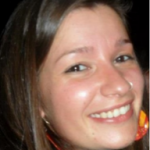 Ilaria Di Maggio
Ilaria Di Maggio
University of Padua, Italy
Ilaria Di Maggio is a PhD student at the Doctoral School of Psychological Sciences at the University of Padova. She received her Master’s degree in Psychology at the University of Padova, where she also obtained a Postgraduate certificate in Life Design and Career Counseling. Since 2013, she has been collaborating with the Larios Laboratory and the University Center for Disability, Rehabilitation and Inclusion of the University of Padova. She is member of the Italian Society of Vocational Guidance (SIO). Her PhD research project “Substance Use Disorder and Career Design” is based on the Life Design (LD) approach, and deals with the need to promote the development of abilities and knowledge that allow people to successfully face the professional difficulties that characterize the present labour market. In particular, the research project investigates the variables on which the LD approach places attention, such as career adaptability, and new constructs such as hope, future orientation and courage, for people with substance use disorders. [Research Project Poster]
Alison Fielding
Canterbury Christ Church University, United Kingdom
 Christine Garzia
Christine Garzia
University of Malta
Christine Garzia graduated in Psychology (Hons.) and subsequently in Lifelong Career Guidance and Development at the University of Malta. Later on in her career she specialised in Occupational Psychology at Birkbeck College, University of London. Christine has worked in the field of employment and career development for the past 10 years as a careers advisor, trainer and mentor with different target groups. Furthermore, Christine also worked in the media and communications sector for several years, during which time she managed a number of projects involving the development of career guidance tools, including guidance manuals for students and teachers, career information websites and audio-visual educational tools. Christine is currently a pre-registration PhD student at the University of Malta. She is interested in researching the practical element, i.e. work-based learning, supervised practice and practicum, in the current academic training of career guidance workers. [Research Project Poster]
 Dinah Gross
Dinah Gross
University of Lausanne, Switzerland
Dinah Gross is a teaching assistant and PhD candidate at the Institute of Social Sciences of the University of Lausanne, Switzerland. Aiming to understand social inequalities in a life course perspective, her research interests focus on gender and educational and employment trajectories. In her thesis, she works with Gottfredson’s theory of circumscription and compromise in order to explore how teenagers’ social backgrounds (gender, social class) and representations of occupations in terms of gender and prestige affect their occupational aspirations. She works with a quantitative methodology.
 Zofia Kabzinska
Zofia Kabzinska
University of Lodz, Poland
Zofia Kabzinska is an Assistant Lecturer and Researcher at the Department of Business and Career Counselling Psychology at the University of Lodz in Poland. She graduated in Psychology at the University of Lodz (2010), and also received an Erasmus Mundus European Master’s Degree in Work, Organizational and Personnel Psychology from the University of Valencia in Spain (2012). Her current research interests include qualitative methods in vocational guidance and school-to-work transition, as well as work-related stress and its relationships with personal and organizational factors (e.g. vocational personality, person-job fit and organizational conflict). She is particularly interested in the application of Kelly’s Personal Construct Theory to vocational guidance. She is currently preparing her doctoral research under the supervision of Prof Anna Paszkowska-Rogacz. The aim of her project is to analyse longitudinally the development of career constructs of young adults, during their school-to-work transition.
 Didem Kepir-Sávoly
Didem Kepir-Sávoly
Hacettepe University, Turkey
Didem Kepir-Sávoly received her Bachelor’s and Master’s degrees in Counselling and Guidance in Turkey. She has started to focus on career counselling in her master thesis. She is currently a Ph.D. student in Counselling and Guidance at Hacettepe University. Her dissertation is designed to test a course used successfully in the USA, Career Navigation, concerning its effectiveness for the development of senior year university students’ career adaptability and career optimism. Within the frame of her study, she was a visiting scholar at Kent State University, USA, in order to work and cooperate with Dr Lara and Dr Savickas who developed and contributed to the Career Navigation Course. She also works as a research assistant at Hacettepe University, where she pursues her research interests on topics around school-to-work transition, career adaptability, career optimism, hope, career interventions, career construction and Life Design. [Research Project Poster]
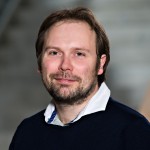 Bo Klindt Poulsen
Bo Klindt Poulsen
Aarhus University Copenhagen / VIA University College, Denmark
Bo Klindt Poulsen is a lecturer in Career Guidance at VIA University College in Aarhus, Denmark, and a Ph.D. student at Aarhus University. He has worked in the field of career guidance since 2000, first as practitioner, later as a manager, and since 2013 as lecturer at the Diploma Program in Career Guidance at VIA University College. He heads the research program in career guidance at VIA and works closely together with the career guidance sector on developing the career guidance system in Denmark. Bo’s Ph.D. project is called “Career Guidance in Cooperation” and investigates relations between career education and career learning in comprehensive school in reference to planning and internal/external cooperation on career education. The project is organized partly as practice research, with directly interactions with practitioners, and partly as an organizational study, that analyzes different ways of organizing the career guidance cooperation. [Research Project Poster]
 Christer Langström
Christer Langström
Stockholm University, Sweden
Christer Langström is a university lecturer at the Stockholm University’s Department of Education. He obtained his Bachelor in Education with a specialization in guidance and counselling in 1991. For 10 years, he worked as a guidance counsellor at secondary schools, as a career counsellor at the Labour Office, and as an independent consultant. In 2001, he began teaching at the School of Education in Stockholm and at Stockholm University in 2008. Since 2012, he has been working on his dissertation, using qualitative interviews to examine long-time unemployed people’s narrative experiences of career guidance and career coaching. Drawing on Illeris’ theory of learning, Honneth’s theory of recognition, and Hodkinson & Spark’s careership theory, the purpose of the study is to develop knowledge about how career guidance and career coaching in transitional situations affect adults learning in their career development. [Research Project Poster]
 Nimrod Levin
Nimrod Levin
Hebrew University of Jerusalem, Israel
Nimrod Levin is a PhD candidate at the Edmond and Lily Safra Center for Brain Sciences. He earned his BA in Psychology and in the Amirim Interdisciplinary Honors Program, and his MA in Brain Research: Computation and information Processing. His main research interests include the cognitive and emotional factors underlying human decision making, individual and cultural differences, intervention research and assessment, and psychometric theory. Within the scope of his PhD project, Nimrod focuses on the stability of preferences and examines the conditions that lead to preference change. In addition, he is currently involved in research on the development of professional preferences and identity of Belgian adolescents, the cross-cultural and psychometric properties of the CDDQ, and the development of women in STEM careers. To date, Nimrod is the author of seven journal articles and two book chapters.
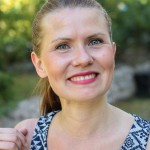 Sanna Mäkinen
Sanna Mäkinen
University of Eastern Finland
Sanna Mäkinen is a PhD student at the Doctoral Program of Social and Cultural Encounters at the University of Eastern Finland (since 2014). She currently works as a career counsellor in Järvenpää Upper Secondary with a Master’s degree in Educational Sociology from the Educational and Vocational Guidance and Counselling Program, University of Eastern Finland. Appointed by the Finnish National Board of Education, she participated in the national core curriculum design for guidance and counseling (2013–14). She also worked in national development projects targeted at guidance and counseling in basic and upper secondary education. She is a co-editor for Ohjaus, a refereed open-access journal for guidance and counselling, which is being established in Finland. Her PhD focuses on the relationship of guidance and young people in the educational margins. Her study is a small-scale study of a local guidance project, which aims at providing low-threshold and easy-access guidance and support for young people who are not in education, work or training. Both ethnographic and narrative methodologies are used to understand what kind of tools and resources young people have access to for the construction of their agency and career, and what is the role of institutional structures in these processes.
 Tijana Maksimović
Tijana Maksimović
Aarhus University, Denmark
Tijana Maksimović is a PhD fellow at Aarhus University, Denmark. She graduated from the Erasmus Mundus European Master in Lifelong Learning: Policy and Management, having studied at Aarhus University and University of Deusto, Spain. Prior to her Master studies, she worked in career guidance in Serbia, her home country, providing career services to university students and graduates. Her PhD project explores the transition of international doctoral students in Denmark to a post-PhD career. The focus is on students in technical and natural sciences and how they experience this process in the light of more diverse career options they have at their disposal today, outside the traditional academic path. Particular attention is paid to their career identity and how they narratively construct it.
 Teea Oja
Teea Oja
University of Jyväskylä, Finland
Teea Oja (38), lives and works in Oulu, Finland. She graduated from the University of Oulu as a Master of Education with a major in educational psychology. After her studies, she actively developed her competences in guidance through various qualifications. She is a professional teacher, counsellor and project manager, and an expert of adult education and adult guidance with 15 years of working experience. She has worked as a career counsellor with both groups and individuals, developed guidance methods, services and tools in numerous projects and trained managers in guidance. In her doctoral dissertation (Doctor of Education, started 2013 in University of Jyväskylä), her aim is to research adults’ experiences of guidance and counselling at work. What kind of hopes do they have towards the issue and what kinds of situations are they facing in the course of their careers and lives? Has guidance met their hopes?
 Christina Pernsteiner
Christina Pernsteiner
University of Graz, Austria
Christina Pernsteiner has been a researcher and lecturer at the University of Graz’ Institute of Education since 2014. Her areas of expertise include educational science with a focus on childhood education, career guidance, writing in social science, gender and generation studies. Between 2008 and 2014, she was a project leader and developed career guidance activities and learning materials with secondary and primary schools. She also coordinated a national-wide evaluation of the Austrian career guidance concept “IBOBB” for 13-/14 year-old pupils. Her dissertation is about “The world of work from the perspectives of children between 4 and 10 years”. The aims of her qualitative social research are to increase the knowledge about children’s understanding of work and career and to offer new insights into career guidance as a lifelong (learning) process. It shall also shed more light onto inequality processes due to gender and social background. [Research Project Poster]
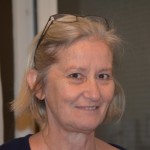 Marie-Line Robinet
Marie-Line Robinet
Conservatoire National des Arts et Métiers, France
Marie-Line Robinet is a PhD student at the Conservatoire National des Arts et Métiers in Paris and has been working as a counsellor in a job centre for over 20 years. She has a long practice of career counselling. The main goal of her research, is to attempt to understand some processes leading the client to change, during the interview. Her research is situated in the context of the Life Designing paradigm, which assumes the principles of constructivism and thereby emphasizes the individual’s relationships during interactions and interlocutions with others. The study aims to describe the role interactions and interlocutions play in individuals’ reflective activities when telling their life stories and constructing a life design. On the basis of communication theories and linguistic analysis of real condition interviews, we try to show the role of dialogues, interactions and interlocutions in the words of the client.
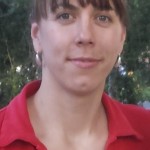 Diana Tchasse Simo
Diana Tchasse Simo
Vytautas Magnus University in Kaunas, Lithuania
Diana Tchasse Simo is a postgraduate in career designing from the Vytautas Magnus University in Kaunas and is writing her PhD research in the same field. The topic of her research thesis is “International last year bachelor/master students’ preparation to succeed in pursuing employment in destination country Lithuania“, which rose from her interest in immigrants’ career development. She has served as Talent Manager for AIESEC (www.aiesec.org) before becoming a certified De Bono Trainer in 2012. She participated in numerous projects based on teaching E. de Bono thinking such as training Lithuanian school teachers on acquisition and application of De Bono thinking and thinking tools. She is very interested in career design and redesign, solution-focused coaching for teams and organizations and previously mentioned E. de Bono thinking and thinking tools. She is passionate about adult education and training, which is her bachelor field of study. Currently stay-at-home mother of three children, she is based in Kaunas-Lithuania with her husband, who is an immigrant himself developing his career in Lithuania.
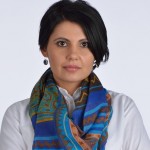 Tanya Terziyska
Tanya Terziyska
Sofia University, Bulgaria
Tanya Terziyska is a PhD student at the Sofia University (since January 2016), where she is working on the research topic “A model of career management skills for young people and the NEETs group”. The main aim is to study the different approaches and opportunities for developing skills in young adults (ages 15-29) and helping them to manage their own careers, focusing especially on the NEET group (Not in Employment, Education and Training). Tanya has a Master’s degree in Career Consulting and an international certification for career consulting practitioners (GCDF). Since 2009, she has been running her own career consulting centre, Selfinvest (www.selfinvest.eu). Tanya has experience in individual career consulting sessions with pupils, students at school and young people, providing workshops for career guidance and organizing social responsibilities campaign for students. In 2012, Tanya received an award from the National Career Guidance Awards (Bulgaria) for best practice of career consulting category school education. Tanya participated in the international conference for career consultants “Motivation for development” in Sofia 2012, presenting a training tool for developing career management skills.
Marcelina Turbak
University of Lower Silesia, Poland
 Angela Ulrich
Angela Ulrich
University of Applied Labour Studies in Mannheim, Germany
Angela Ulrich is a Scientific Assistant at the University of Applied Labour Studies in Mannheim, Germany. She graduated in Social Sciences at the Mannheim University before joining the Federal Employment Agency in Germany, where she trained as a Junior Manager. There, she had the opportunity to work in a number of different areas for several years. Her doctoral research project deals with the influence of individual coping strategies on VET students’ vocational choice. The objective is to develop an intervention instrument for educational guidance and counselling of students. This new instrument takes into account the individual coping strategies of future VET students. The purpose is to support VET students’ decision making and responsibility by strengthening their behavioural self-control. The focus will be on their orientation process before they have started their vocational training. [Research Project Poster]
Jon Woodend
University of Calgary, Canada
Jon Woodend is a second year doctoral student in Counselling Psychology at the University of Calgary in Canada. Before pursuing a doctoral degree, Jon worked as a high school teacher in Japan where he became interested in international career transitions based on his own transition experience. Jon is currently working on his doctoral dissertation under the supervision of Dr Nancy Arthur. The dissertation will use Interpretative Phenomenological Analysis (IPA) to explore how international students in Canada make meaning of their transition from university to the workforce. The goal of the dissertation is to highlight the experiences that international students find impactful and provide best practice guidance for universities and career practitioners. In terms of clinical experience, Jon has worked with adolescents and young adults at both the secondary and post-secondary level with concerns including anxiety, depression, and career and identity exploration. [Research Project Poster]
Guests of the Third Summer School
Esther Tan
Senior Specialist, Guidance, MOE
Esther Tan is working as a senior specialist in the Ministry of Education, currently focusing on the development of the Education and Career Guidance Counselling (ECG) initiative for schools and post-secondary institutions. She is also a licensed counsellor with a Master’s of Education in Risk and Prevention in Guidance Counselling from the Harvard University. She was formerly a Chemistry Lecturer and Subject Head in Hwa Chong Junior College, with an Honours (Upper) degree in Chemistry and Postgraduate Diploma in Teaching. Integrating the varied dimensions in her training, she has conducted seminars in the United States, South Korea and Singapore, in the areas of mental health and career-life explorations. With her passion in vocational psychology and human development, she is interested in delving deeper into research and tools that help people venture deeper in self-exploration to achieve their career-life aspirations.
Pedro Moreno da Fonseca
CEDEFOP
Pedro Moreno da Fonseca is Cedefop’s Lifelong Guidance expert. Previous to Cedefop he developed EU level work in European policy networks in the fields of employment and guidance. He has developed and managed research in lifelong guidance systems, educational transitions, technological innovation and organisational learning. He has worked in the development of national systems in employment, VET/education, guidance and technological innovation for the Portuguese ministries of education, labour and economics. He holds a PhD in Sociology of Education.

